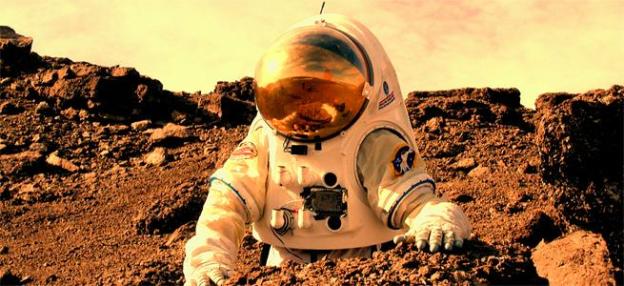 With the moon done and dusted, we curious humans have been diligently searching for another rock in the sky where we can stick a flag in the ground and dance about a bit.
With the moon done and dusted, we curious humans have been diligently searching for another rock in the sky where we can stick a flag in the ground and dance about a bit.
Looking at various news stories over the last year or so, Mars appears to be the leading candidate, with former space tourist Dennis Tito seemingly intent on sending a married couple to the planet in 2018.
More ambitious plans have been announced by the Mars One team, a Dutch outfit that plans to put four humans on the Red Planet in 2023 in a bold attempt to colonize it. Incredibly, more than 78,000 earthlings have already signed up for the mission, with around half a million more expected to put their names forward before the application procedure closes at the end of August.
Oh, and NASA’s thinking about having a go, too.
Of course, any such mission is fraught with difficulty and danger. Being cooped up inside a tiny spacecraft for months and months while existing on a diet of, among other things, sweat, urine and printed pizza, is certain to create physical and psychological pressures the likes of which our bodies and brains have surely never experienced.
In an effort to ensure astronauts on a Mars mission retain their sanity, NASA is investing $1.3 million in the development of a psychosocial sensing badge designed to monitor the psychological health of those who wear it.

Researchers at Michigan State University, where the pocket-sized badge is being developed, say the system will be able to assess the astronauts’ mental health through the transmission of information on things such as blood pressure and heart rate. It’ll also be able to make sense of the dynamics of the astronauts’ interactions, monitoring vocal patterns and such like, enabling it to flag up any potential issues before they become a serious problem.
“You can never ensure that nothing bad will happen,” project leader Steve Kozlowski said. “But a coherent means of assessing interactions and stress….is one way to protect against any negative outcomes.”
The system, which incidentally sounds like it would find plenty of use back here on Earth as well, would offer astronauts direct feedback on their behavior, together with advice on how to proceed if relationships started showing signs of strain.
Kozlowski said he doesn’t want the badge to be part of a “Big Brother observation system”, explaining that it was more about “giving team members the opportunity to self-regulate their own behavior.” However, he added that if there were any particularly worrying signs that all was not well on board the spacecraft, crew on the ground could get involved – albeit at a distance of 30 million miles.
With NASA’s mission not expected to take place until the 2030s at the earliest, the researchers have plenty of time to perfect their system, one which will hopefully ensure a space flight to Mars free from conflict and psychological breakdowns.
[Source: The Verge]
Editors' Recommendations
- NASA video maps all 72 flights taken by Mars Ingenuity helicopter
- These 3 companies are developing NASA’s new moon vehicle
- NASA’s damaged Ingenuity helicopter spotted in Mars rover photo
- NASA video celebrates Mars helicopter following its final flight
- NASA says goodbye to Mars helicopter Ingenuity after an incredible 72 flights


